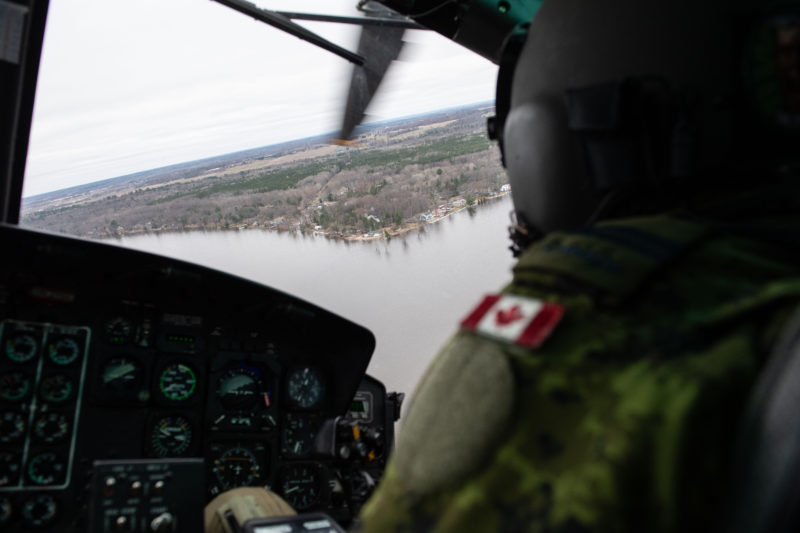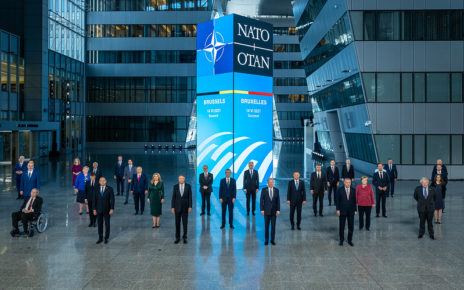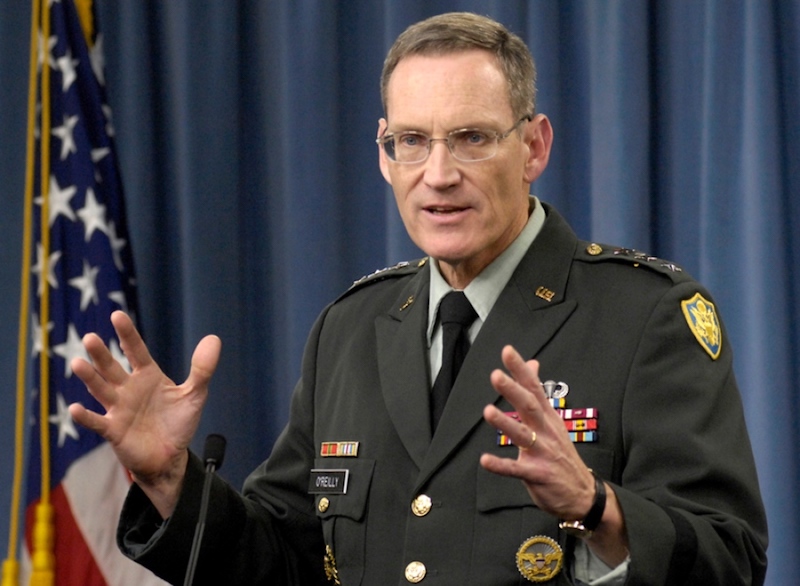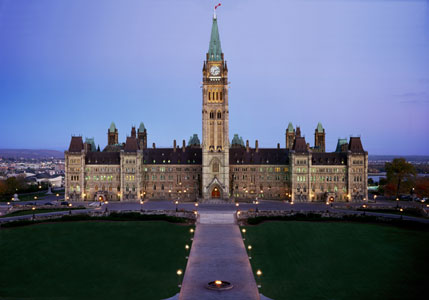Climate change has, in recent years, become a constant fixture in the realm of political discourse, with debates over environmental policy positioned to play a crucial role in both the upcoming Canadian and American elections, as well as abroad. Environmental stewardship is undoubtedly important to securing our own future, as outlined by the World Meteorological Organization’s UN report. While Canadian governmental policy on the whole has taken a relatively active stance on climate policy, most explosively witnessed in the current carbon pricing debate, the defense posture of both Canada and NATO has conversely remained somewhat reactive when it comes to dealing with the security implications of climate change. As such, the question arises as to whether Canada’s Department of National Defense, and in turn other defense alliances, have the capacity and jurisdiction to deal with environmental security more directly.
On an international scale, the security risks posed by climate change can clearly be seen. In late January, a UN Security Council meeting regarding “the impacts of climate-related disasters on international peace and security” saw the UN system’s chief scientist on weather and climate warn nations that climate change should be regarded as a national security threat with “a multitude of security impacts.” Rosemary DiCarlo, UN Undersecretary-General for political and peace-building affairs, elaborated on these threats, which range from heat waves to higher sea levels to agricultural failures. The tangible impacts of these global shifts can already be felt, particularly in regions most susceptible to instability and resource-based conflict. In Africa’s Lake Chad basin, for example, drying water sources have led to increased recruitment for Boko Haram, according to Nasarawa State University. “People are already deprived of a basic livelihood,” explains professor Haruna Kuje Ayuba. “If you give them a little money and tell them to destroy this or kill that, they are ready to do it.”
Sub-Saharan Africa is far from the only at-risk region, however. From water shortages in the Middle East, to flooding in the Pacific Islands, to U.S. military equipment being damaged by climate change events (as outlined by a recent Department of Defense report) shifting environmental factors present a number of security risks that will only grow with time. Yet many ‘stable’ countries have taken a more passive stance in dealing with climate change as an immediate threat. At the January Security Council meeting, “climate change” was not mentioned in acting U.S. Ambassador Jonathan Cohen’s speech, and Russian UN Ambassador Vassily Nebenzia strongly protested the inclusion of climate change in Security Council discussions. According to Nebenzia, it should only be discussed with regards to individual situations in which it is a risk factor.
Like the rest of the world, Canada has already experienced the security threats that come with climate change in a number of ways. As previously mentioned, the U.S. Department of Defense released a report spelling out the ways in which climate change events could and have seriously damaged military property, which equally applies to Canadian defence equipment. Ever-increasing floods and forest fires have also rocked the country of late, causing Minister of Defence Harjit Sajjan to warn that the number of Canadian Forces personnel available to deal with environmental disasters induced by climate change may have to be raised should their frequency continue to grow. Arctic melting also poses a threat to Canadian sovereignty, as the far north’s increased navigability is already seen as an economic opportunity by countries from the U.S. to Russia who view far-north territory like the Northwest Passage as international waters. This threat was recognized in “Strong, Secure, Engaged,” in which the word “Arctic” was mentioned seventy-seven times. Clearly, Canada faces its fair share of immediate environmental security threats. What remains to be determined, however, is how it approaches defence-centred climate change policy moving forwards.
As it stands, Canada joins the rest of the global defence community in largely dealing with climate threats as they arise. As previously mentioned, this includes deploying troops to provide relief during natural disasters. Termed Operation LENTUS, Canadian Armed Forces follow “an established plan of action to support communities in crisis” upon receiving an aid request from provincial and territorial authorities, which can be adapted depending on the situation. Canadian defence as well as foreign policy also deals with global issues related to climate change, from arctic sovereignty to international relief missions.
With that being said, the exponentially increasing nature of climate change means that current reactive defence policies are largely incapable of preventing the rise of environmental security threats, and instead merely treat their symptoms. It is therefore fair to argue that Canada’s Department of National Defence should at the very least explore options as to how they might better join the fight against climate change. The question, however, is how that could feasibly take place. With no actual combat involved, how would a military body contribute to the task of environmental stewardship outside of the emergency preparedness procedures already in place?
Nationally, the CAF and defence forces like it could begin by setting climate goals for their own operations and infrastructures – while this would be undeniably complicated, all government bodies committed to climate change prevention should be willing to do their part to become sustainable as well, and the military is no exception. More broadly, however, Canada could make use of soft power avenues such as defence alliances like NATO to ensure a greater commitment to environmental sustainability throughout the international defence landscape. Global pledges, such as the Paris Agreement, as well as more specific regional institutions such as the Caribbean Disaster Emergency Management Agency, already exists to bind countries to climate goals and share preparedness procedures in their respective fields. As a purported leader in the world of climate change prevention, Canada stands to do more in terms of engaging with the international community in the world of environmental security. Both in terms of normalizing the acceptance of climate change as a clear and present security threat through soft power options, as well as creating and sharing mechanisms to combat transnational climate threats where they do arise, Canada’s defence policy makes have a number of options to combat climate change directly. While there may not be a clear enemy to fight, defence forces nevertheless have the ability, and therefore the responsibility, to be more active in the field of environmental action.
Photo: Royal Canadian Navy personnel and members of the City of Ottawa’s Police and Fire Department survey the flood damage in the areas around Ottawa, Ontario as part of a reconnaissance flight during Operation LENTUS on May 2, 2019, by Master Corporal Donnie McDonald, 4 Canadian Division Headquarters Public Affairs Imagery Technician via source. Photo courtesy of the Canadian Forces Combat Camera, Department of National Defence.
Disclaimer: Any views or opinions expressed in articles are solely those of the authors and do not necessarily represent the views of the NATO Association of Canada.




